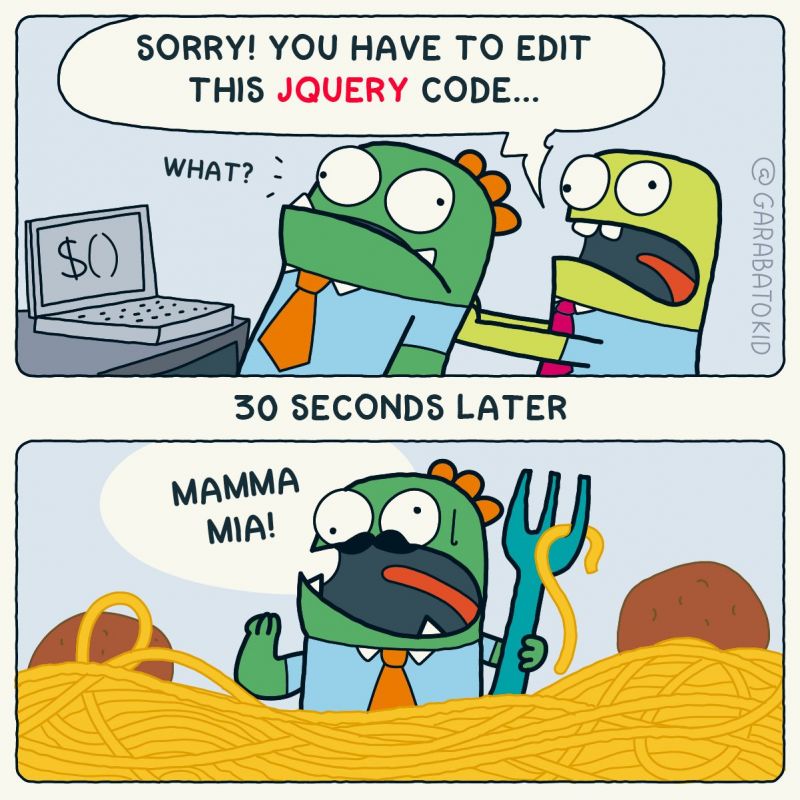Join devRant
Do all the things like
++ or -- rants, post your own rants, comment on others' rants and build your customized dev avatar
Sign Up
Pipeless API

From the creators of devRant, Pipeless lets you power real-time personalized recommendations and activity feeds using a simple API
Learn More
Related Rants

 Current State
Current State
I think promoting 'a quick lookup on Google' every single time you need to add something useful into your codebase is a bad mentality. It's the same problem with populating your code with Stackoverflow snippets.
I think this is not a good approach because your code will eventually rot and you won't have full control over your codebase in that you didn't write those parts and you don't fully know what's going on underneath. Then, you will forget about that code. A new feature request will come up and oh no, you will be wrestling with your old code because you just quickly inserted it in there, not fully knowing it under the hood. Hours will be lost on debugging.
I advocate much more the approach of really knowing the language and the solutions you're using, instead of just constantly hacking it with the excuse of "Oh, there's no time to learn everything", "You don't need to know the details" and "This is the real world".
No, this is not a good attitude. With the former approach, you will be much more able to safeguard your code and improve on it, rather than wrestling for hours with it. I think it's important to have as much ownership of your code as possible and depend as little on outside libraries as possible.
Fundamentals first, practicality second.
devrant
quick fix
mentality
spaghetti
code ownership
bad practice